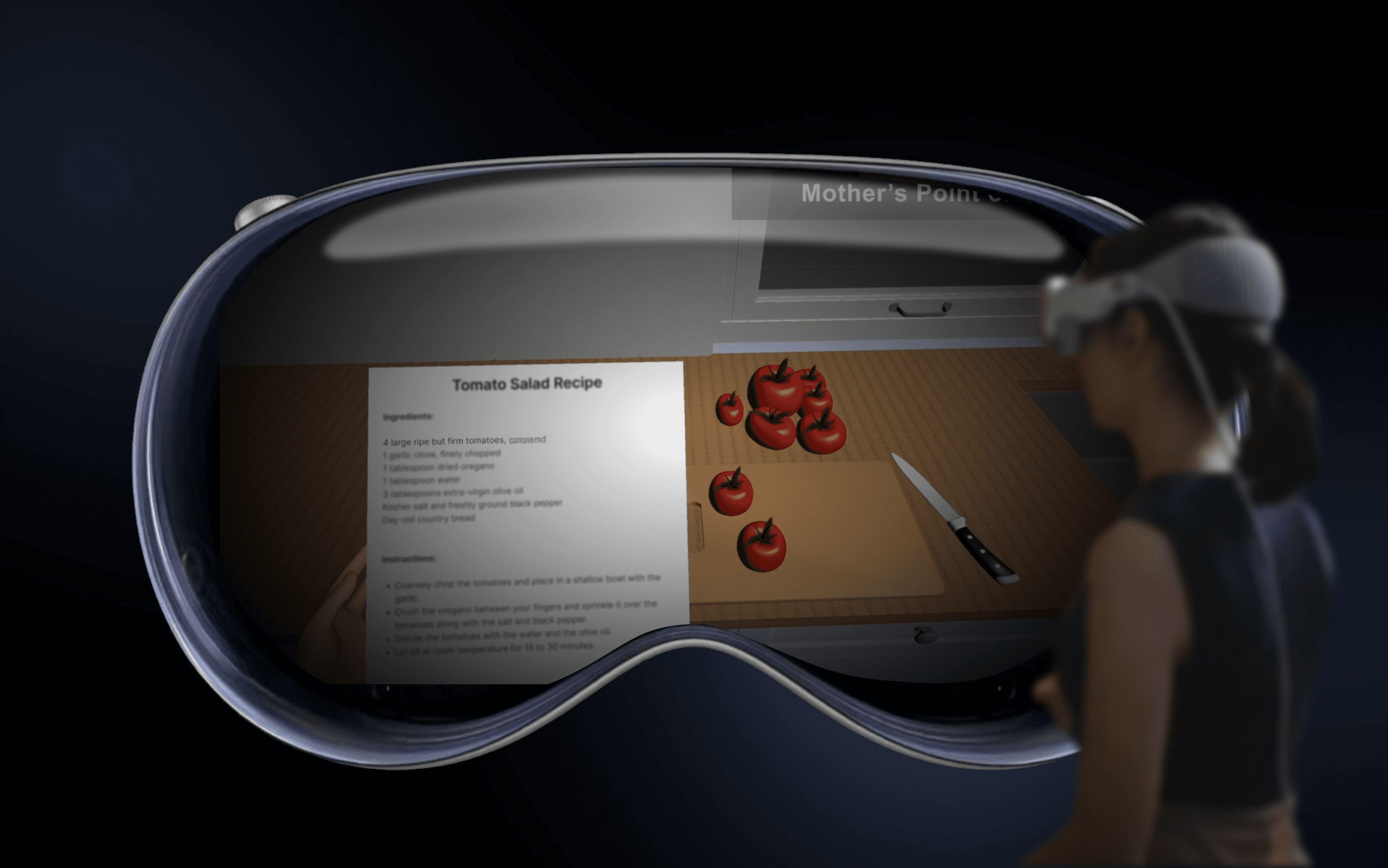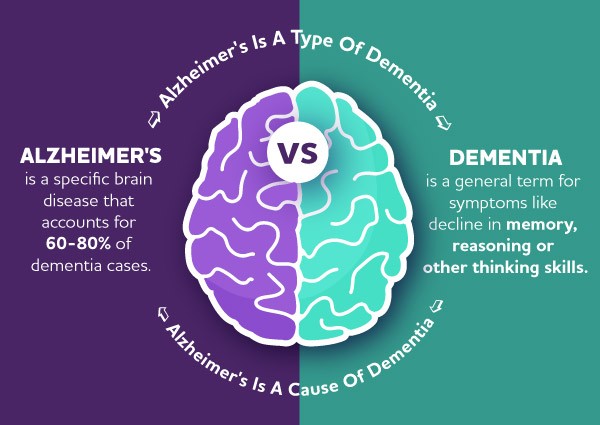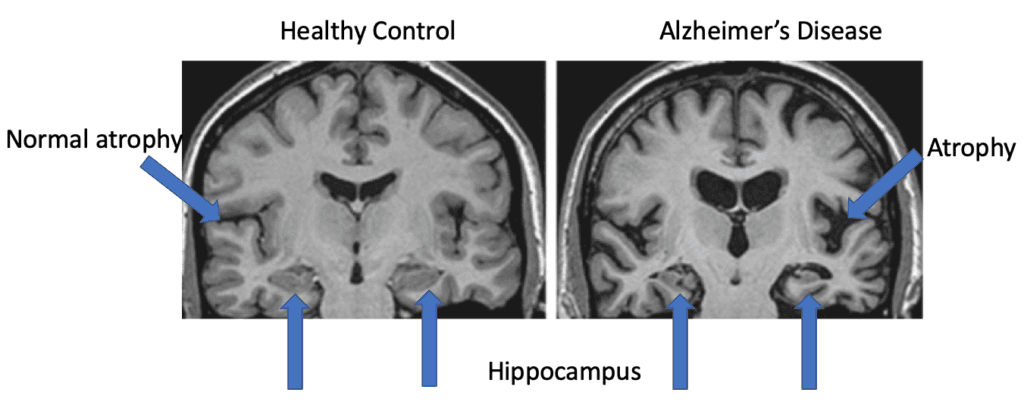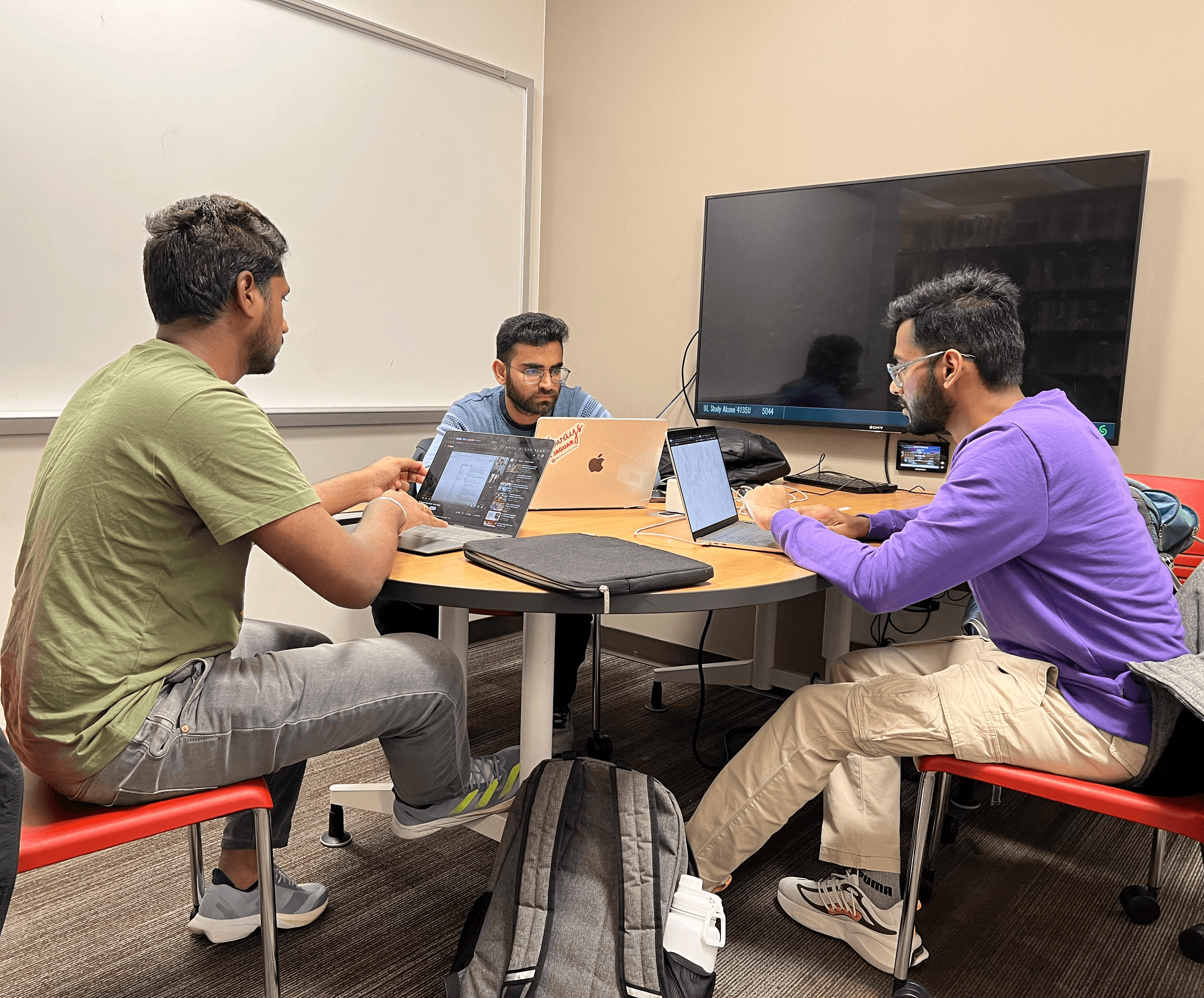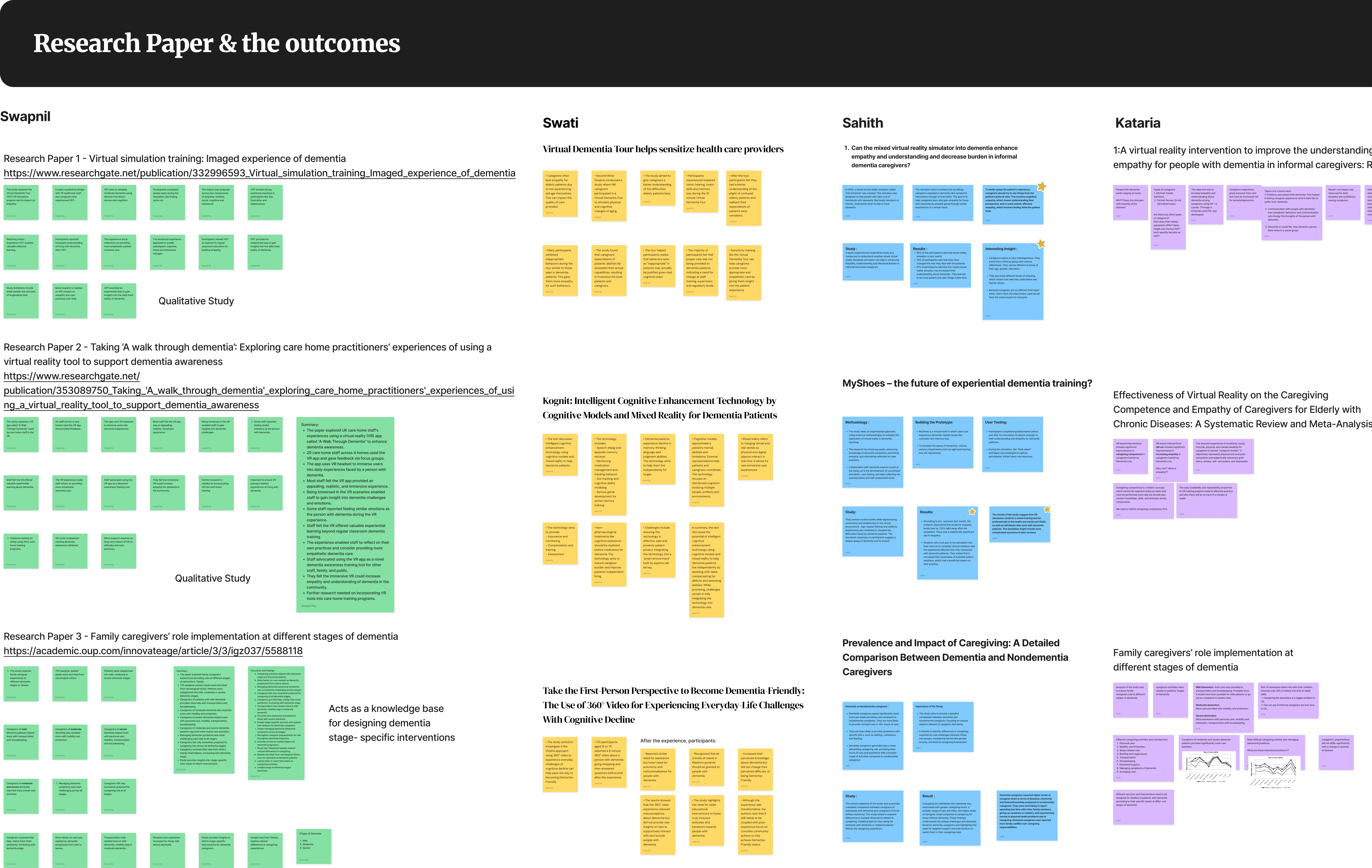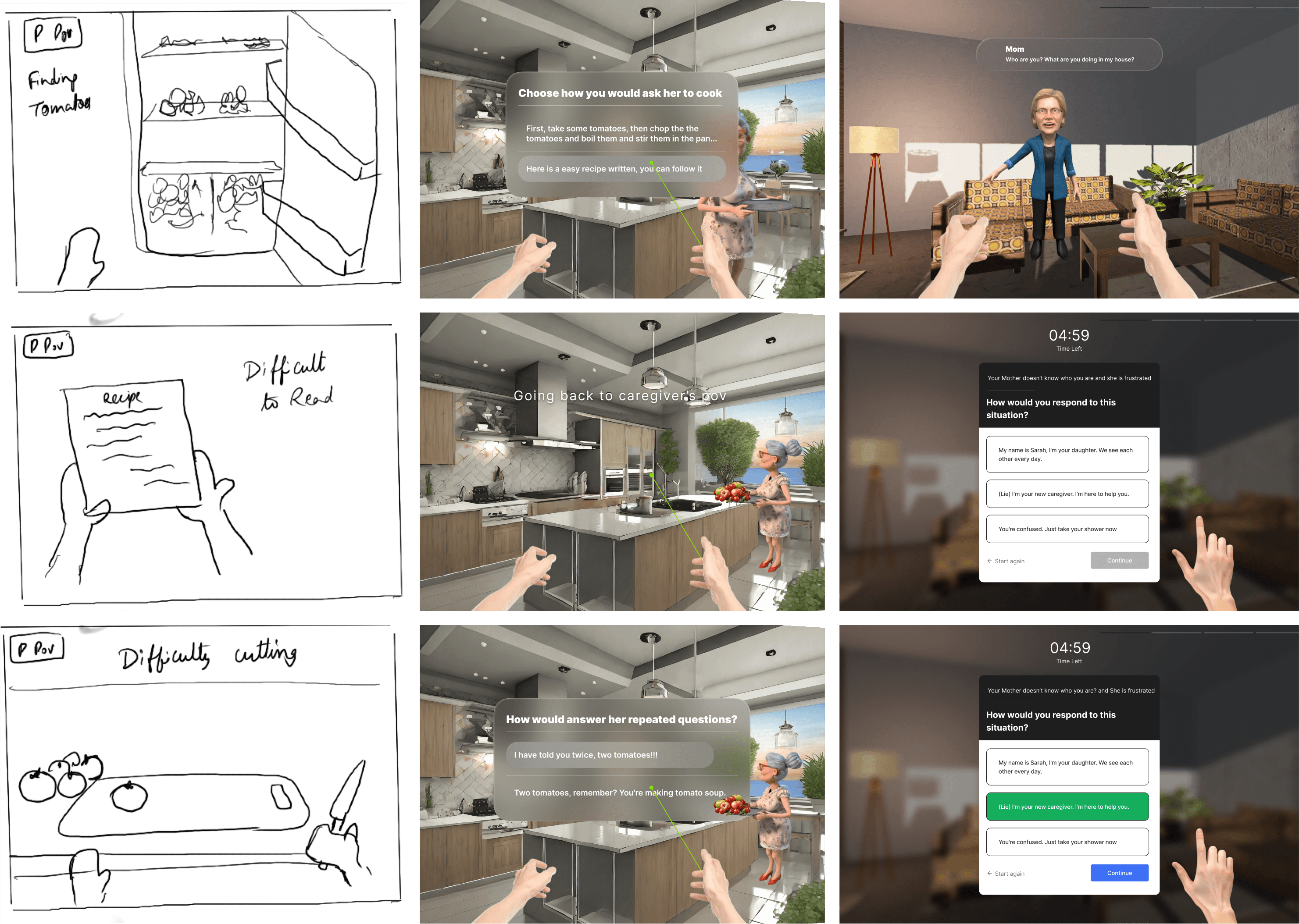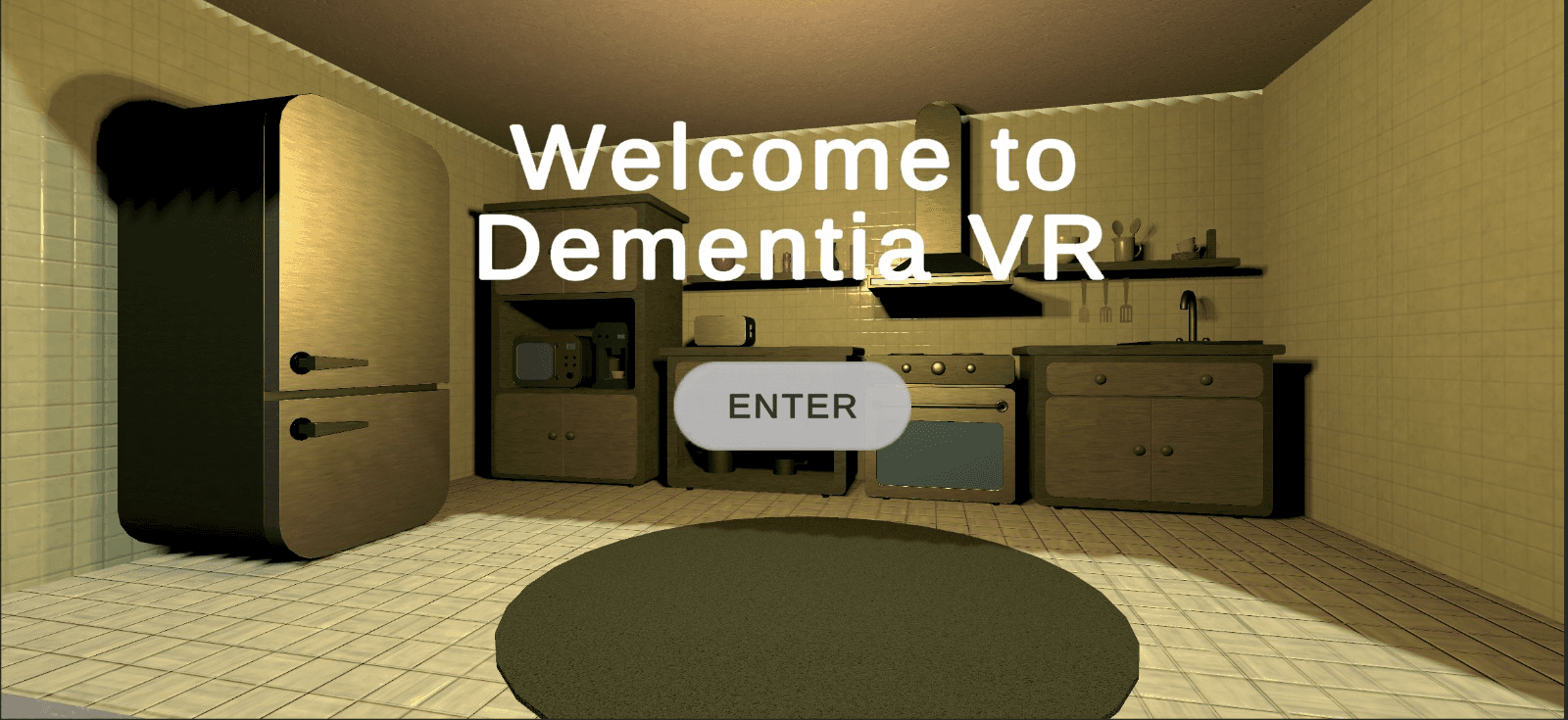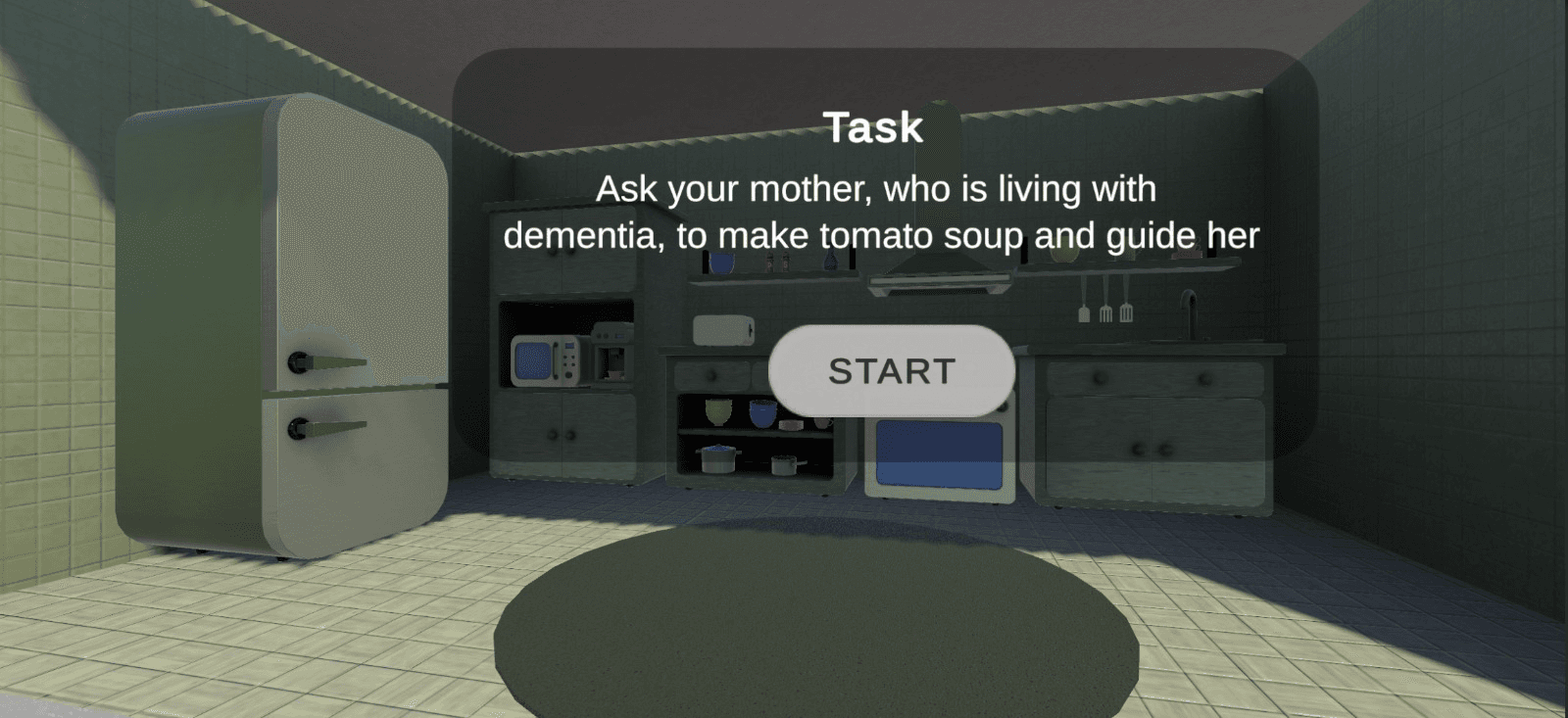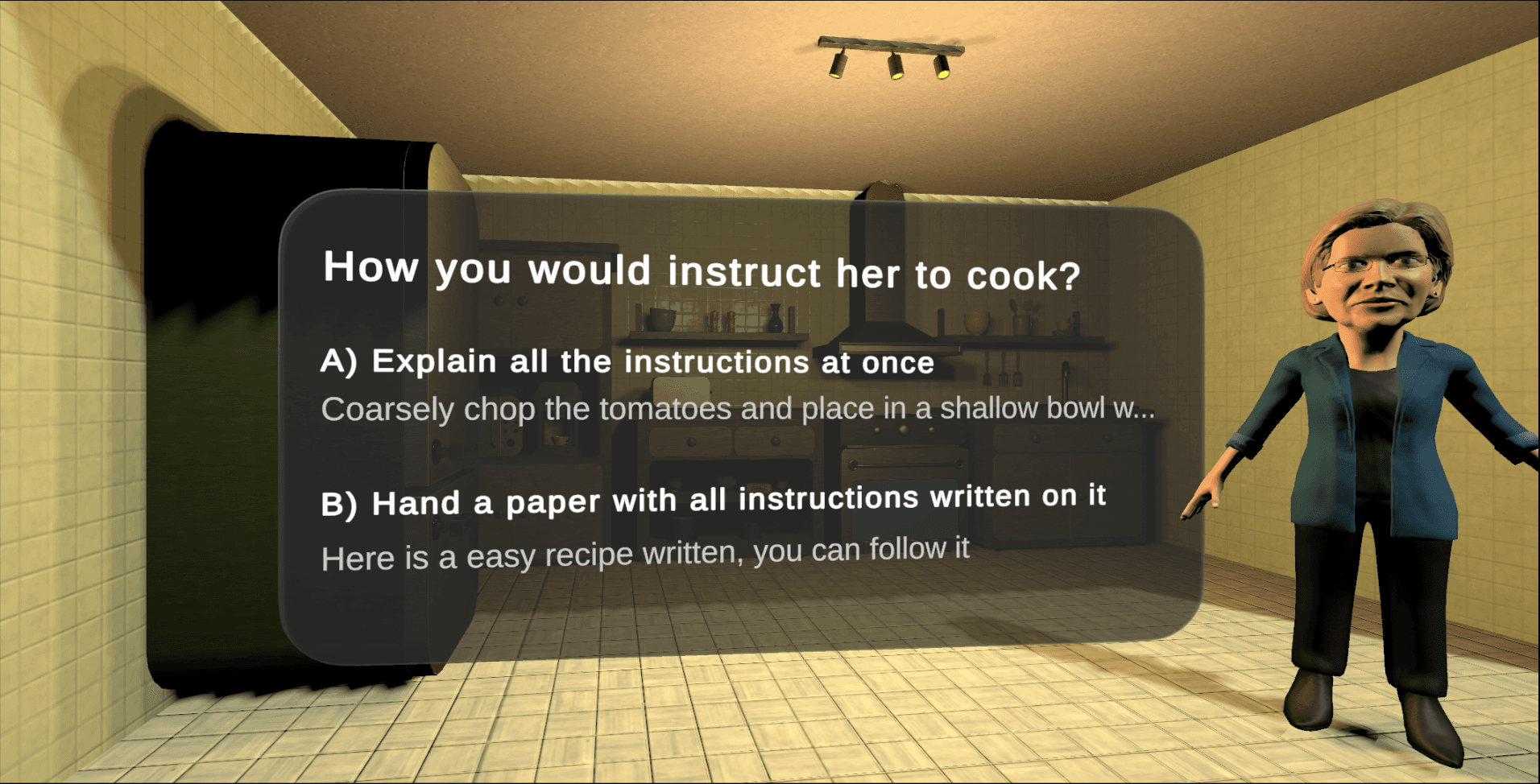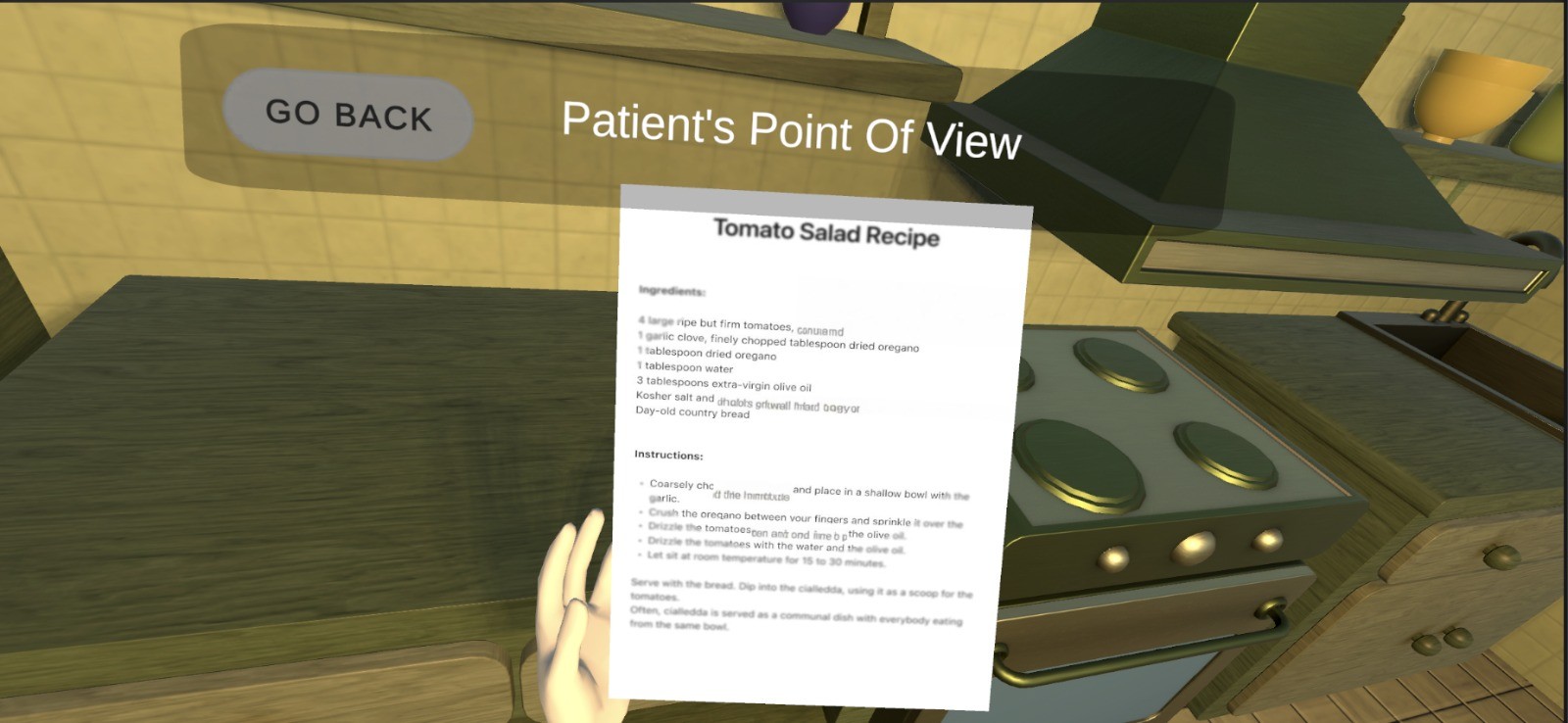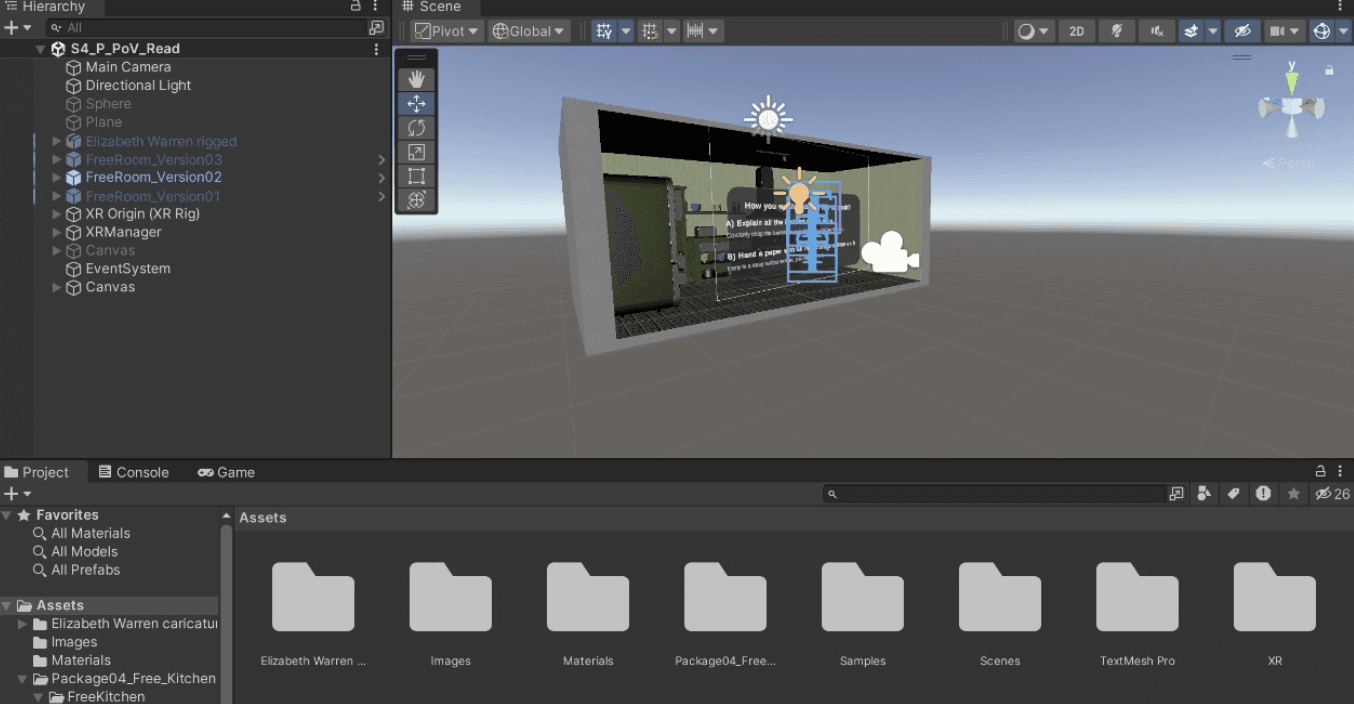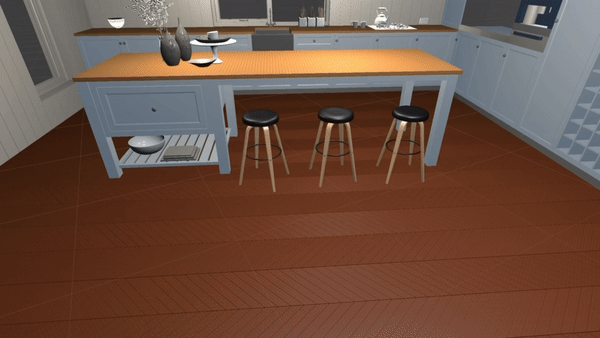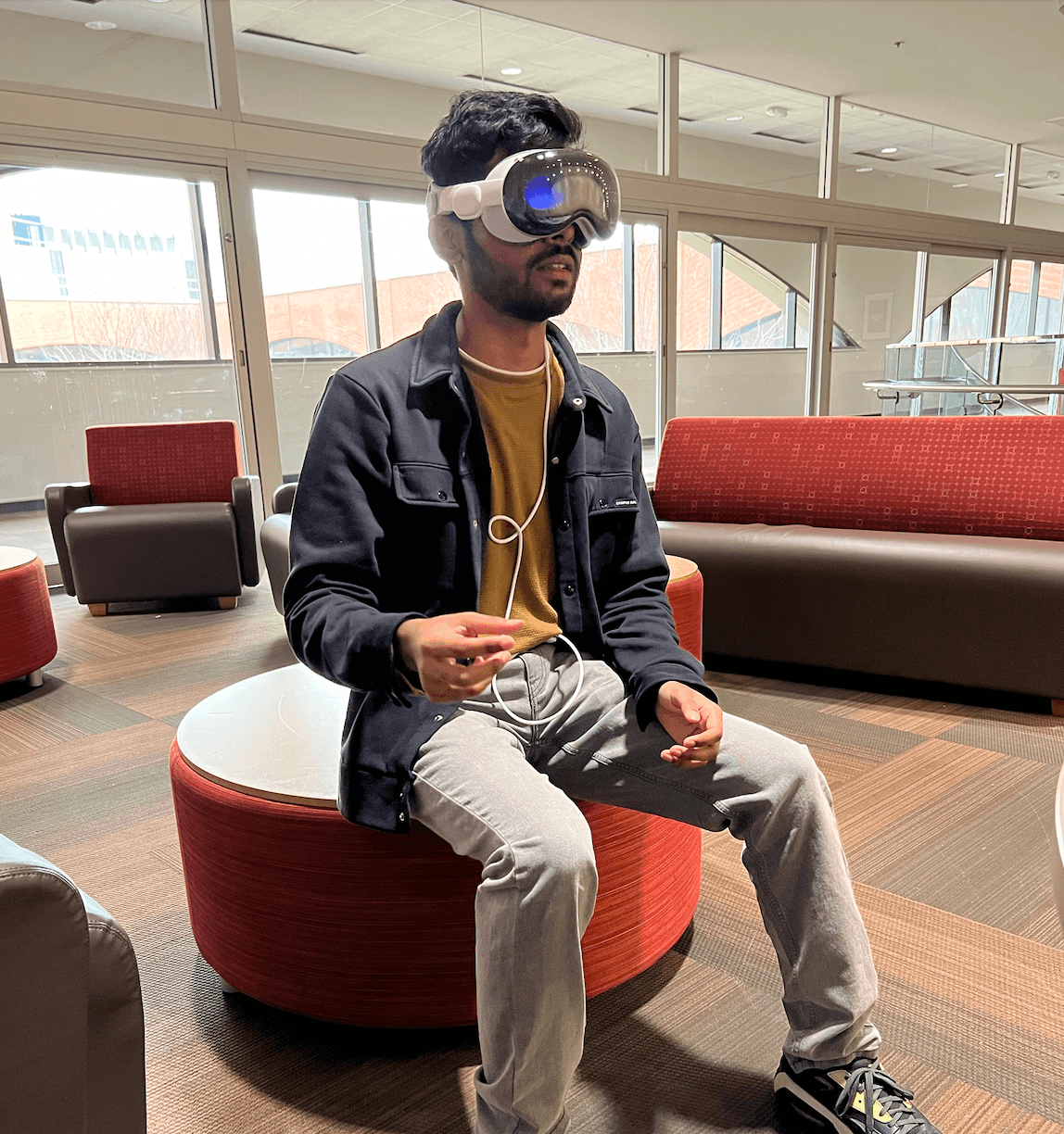Transforming Empathy in Dementia Care: A VR Design Journey 🧠✨

2 User Researchers
UX Designer (Me)
Health Informatics Specialist
Academic Partner
User Research
Developing IA
Storyboarding
Designing Visual Elements
Evaluating User Feedback
Challenge
Caregiving for individuals with dementia can be emotionally taxing. Caregivers often struggle with understanding the daily realities faced by those with dementia, leading to potential gaps in care quality and caregiver burnout.
“ How might we leverage Virtual Reality to foster empathy among caregivers? ”
Results
We developed a VR prototype that simulates real-life scenarios faced by dementia patients and their caregivers. The prototype offers interactive experiences that allow caregivers to:
Experience dementia-like symptoms firsthand
Practice responding to challenging situations
Learn effective communication strategies
45%
Increase in caregiver empathy
30%
Enhanced training effectiveness
88%
Positive feedback from user testing
What is Dementia?
Dementia is a general term used to refer the cognitive decline in memory, reasoning, and other thinking skills.
Symptoms
Decline in cognitive function
Memory Loss
Reasoning decline
Communication skills decline
Impaired ability to perform daily activities
Atrophy → loss of neurons and their connections
Gaining from the Literature
We reviewed 16+ research papers' methods, strengths, limitations, and outcomes.
💆
VR as a Therapeutic Tool
95% of medical students recommended VR for empathy training.
VR interventions have been used to enhance mobility and train cognitive abilities in dementia patients.
🧑⚕️
Caregiver Challenges and Support Needs
Family caregivers face high levels of burden, stress, and isolation, often exacerbated by behavioral problems and lack of support.
⚠️
Challenges in Adoption
Despite its potential, literature raises skepticism about VR effectiveness, elderly accessibility, and the need for customization.
Understanding Current Solutions
Existing VR Solutions
Solutions such as MyndVR and Embodied Labs, offer immersive experiences to enhance understanding and empathy among caregivers.
Gaps in Current Offerings
They focus on training but lack comprehensive scenarios that address empathy, communication difficulties and emotional stress management.
Opportunities for Improvement
Enhancing VR with interactive daily scenarios can help caregivers practice skills and receive feedback on dementia-related challenges in a safe environment.
Listening to the Users
We interviewed 14 users, 8 people living with dementia and 6 care partners

“ A check that should have been $100 but I wrote it for $1000 ”

“ I almost got arrested when I fought with a restaurant worker who didn’t meet my needs ”

“ Sometimes he (husband) forgets us and asks if he has any children or wife ”
Key User Pain Points
Articulating and Decision Making
People living with dementia (PLWD) often struggle with simple tasks like arithmetic and following instructions, leading to frustration and errors in everyday activities.
Memory Issues
Repeatedly asking the same questions and forgetting familiar faces or routines are common issues that make daily interactions and responsibilities difficult.
Behavioral Problems
Unpredictable agitation can add significant stress for caregivers, making understanding and managing behaviors a critical challenge.
Ideation and Design
Based on our research insights, we developed personas and scenarios to guide our design process. We focused on creating VR experiences that would:
Simulate dementia-like symptoms for caregivers to experience firsthand
Provide interactive scenarios for practicing caregiving skills
Offer guidance and feedback on caregiver responses
Prototyping
Using Unity, we developed early VR prototype that included:
A welcome screen and task assignment interface
Multiple interactive scenarios, such as:
Managing challenging behaviors and communication difficulties
Assisting with daily tasks like cooking and personal hygiene
Empathizing with dementia struggles through daily activity simulations.
Usability Testing and Constraints
We conducted usability testing with caregivers using Google Cardboard on Android phones. Key findings included:
Button functionality needed improvement for easier navigation
Users desired more engaging storytelling within the VR experience
The prototype showed potential for increasing empathy and understanding.
Accessibility and device compatibility: Prompted by the need for broader accessibility, we decided to go for low-end devices, reducing graphical fidelity and complexity.
Final Solution
Our final VR prototype offers immersive scenarios that simulate common challenges faced by individuals with dementia and their caregivers
Entering the scene as a care partner:
The user begins by assuming the role of a care partner in a virtual kitchen environment.
Assigning a task to make tomato salad:
The care partner assigns a task to the person with dementia, asking them to make a tomato salad.
Experiencing reading difficulties:
The user experiences the challenges faced by a person with dementia when trying to read. Text appears blurry or distorted, making it difficult to comprehend written instructions or recipes.
Simulating memory loss and motor incoordination:
This scene demonstrates the combined effects of memory loss and motor incoordination. The user struggles to remember the steps of a task while also experiencing difficulty in controlling their movements precisely, such as when trying to grasp objects or perform cooking actions.
Impact 🎯
From 3 user tests and presentations, here are the 3 key impacts:
Increase in
caregiver empathy
Enhanced training
effectiveness
Positive feedback
from user testing
Reflection and Key Takeaways
Undertaking this project challenged me to push beyond my limits and expand my capabilities, resulting in significant personal and professional growth.
1️⃣
Takeaway #1 - Empathy is paramount
Seeing caregivers connect with the challenges of dementia patients highlighted the profound impact thoughtful design can have on emotional understanding.
2️⃣
Takeaway #2 - Value of User Feedback
The iterative feedback loop taught me the importance of listening to users. Their insights not only improved our prototype but also underscored the necessity of continuously evolving design solutions to meet user needs.
3️⃣
Takeaway #3 - Team Spirit Matters
Great design comes from great teamwork and shared experiences. Collaborating on this project was a blast, especially with our team’s fun cooking sessions.
